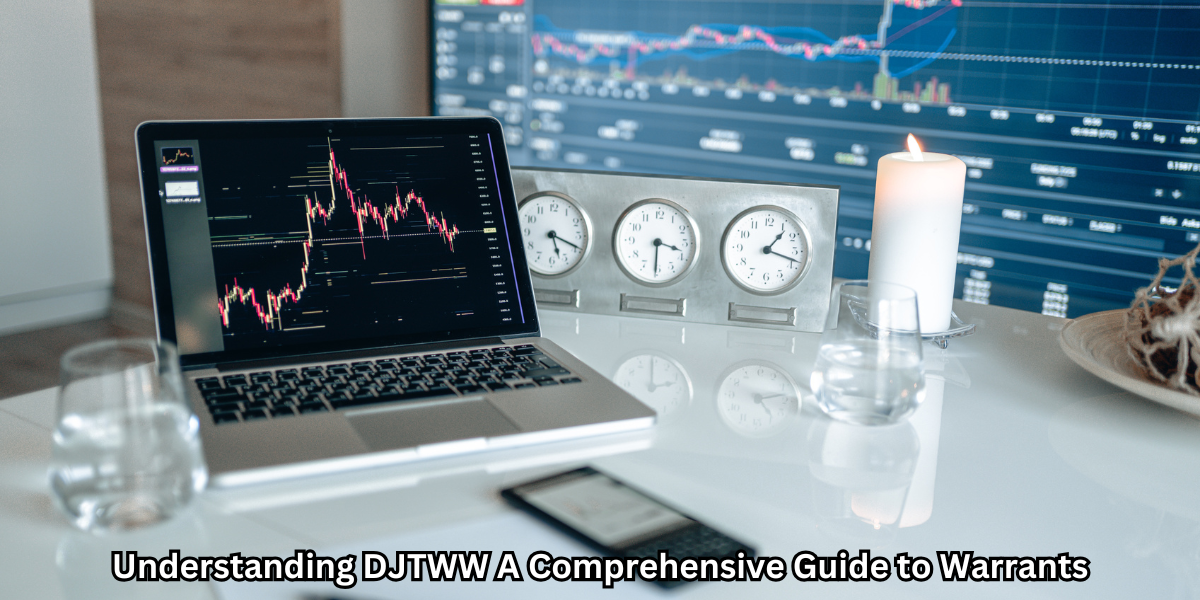
When it comes to financial instruments, warrants like DJTWW play a crucial role in providing investors with an opportunity to amplify their returns. In this article, we will explore DJTWW warrants, their strike price, exercise price, and exercise date in detail. Whether you are new to the concept of warrants or looking to deepen your understanding, this guide covers everything you need to know.
What Are DJTWW Warrants?
DJTWW warrants are derivative securities that give the holder the right, but not the obligation, to purchase a specific underlying asset at a predetermined price within a certain timeframe. These warrants are often associated with stocks and can be a valuable tool for investors looking to leverage their positions in the market.
Read Also: AnonVault Solution for Secure and Anonymous Online Transactions
Key Features of DJTWW Warrants
1. Strike Price
The strike price is the fixed price at which the holder of a DJTWW warrant can purchase the underlying asset. This price is predetermined at the time the warrant is issued. Typically, the strike price is set above the current market price of the underlying stock, creating a potential for profitability if the stock’s value increases.
2. Exercise Price
The exercise price is often used interchangeably with the strike price. However, in some cases, these terms may have slight distinctions depending on the financial context. For DJTWW warrants, the exercise price refers to the cost of exercising the warrant to purchase the underlying shares.
3. Exercise Date
The exercise date represents the specific deadline by which the holder must decide whether to exercise the warrant. DJTWW warrants typically come with an expiration date, which means that if the holder doesn’t exercise the warrant by this date, it becomes worthless.
Read Also: Crypto 30x.com Guide to Skyrocketing Your Crypto Investments
How Do DJTWW Warrants Work?
DJTWW warrants operate similarly to options but come with a few key differences. Here’s a step-by-step breakdown:
- Issuance: Companies issue warrants to raise capital or as part of a merger/acquisition deal.
- Purchase: Investors purchase DJTWW warrants at a premium, hoping the underlying stock price will exceed the strike price before the expiration date.
- Exercise: If the stock price rises above the exercise price, holders can exercise their warrants to buy the stock at the lower strike price, potentially realizing a profit.
- Expiration: Warrants that are not exercised before the expiration date lose their value.
Read Also: Discover www.wavetechglobal.com: Your Gateway to Innovative Solutions
Advantages of Investing in DJTWW Warrants
- Leverage: Warrants allow investors to control larger positions in stocks with a smaller initial investment.
- Potential for High Returns: If the underlying stock’s price significantly exceeds the strike price, the returns can be substantial.
- Flexibility: Investors can choose whether to exercise the warrant or let it expire.
- Diversification: Warrants add diversity to an investment portfolio, allowing for exposure to different financial instruments.
Read Also: Understanding 127.0.0.1:49342 and Its Role in Networking
Risks Associated with DJTWW Warrants
- Expiration Risk: Warrants can become worthless if not exercised before the expiration date.
- Market Volatility: The value of DJTWW warrants is highly sensitive to fluctuations in the underlying stock’s price.
- Liquidity Risk: Warrants may not always have a ready market, making them harder to sell.
- No Dividends: Unlike stockholders, warrant holders do not receive dividends.
Table: Comparison Between DJTWW Warrants and Options
| Feature | DJTWW Warrants | Options |
|---|---|---|
| Issuer | Companies | Exchanges |
| Expiration Date | Longer timeframes | Shorter timeframes |
| Strike/Exercise Price | Fixed by issuer | Determined by market |
| Trading Venue | Over-the-counter (OTC) | Exchanges |
Read Also: Money6x.com Gateway to Earning Opportunities
How to Evaluate DJTWW Warrants
Key Factors to Consider
- Intrinsic Value: The difference between the current stock price and the strike price.
- Time Value: The potential for the stock price to rise before the expiration date.
- Market Conditions: Economic factors influencing the underlying stock’s performance.
- Issuer’s Financial Health: The financial stability of the company issuing DJTWW warrants.
Example Scenario
Suppose a DJTWW warrant has:
- A strike price of $50
- An underlying stock currently trading at $60
In this case, the warrant has an intrinsic value of $10 per share, making it an attractive investment if the upward trend continues.
Read Also: Lotterygamedevelopers.com: Wining And Cash Prices
FAQs
What Are DJTWW Warrants Used For?
DJTWW warrants are used to speculate on the price movement of a company’s stock or as a way to hedge against potential losses in other investments.
How Is the Strike Price Determined?
The strike price is set by the issuing company based on various factors, including the current stock price and market conditions.
Can DJTWW Warrants Be Traded?
Yes, DJTWW warrants can often be bought and sold in secondary markets, though liquidity may vary.
What Happens If I Don’t Exercise My DJTWW Warrants?
If you don’t exercise your warrants before the expiration date, they expire worthless, and you lose your initial investment.
Final Thoughts
Investing in DJTWW warrants can be a lucrative opportunity for those who understand their mechanics and risks. By analyzing key factors such as the strike price, exercise price, and exercise date, investors can make informed decisions to maximize their returns. However, it’s essential to remain cautious and conduct thorough research before diving into the world of warrants.





